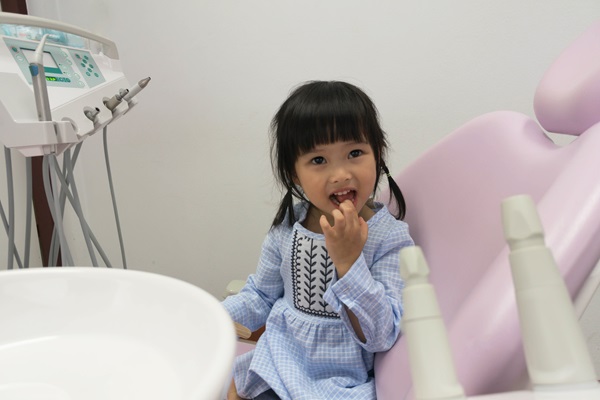Important Pediatric Dentistry Preventive Treatments

A pediatric dentistry office specializes in caring for children’s oral health. These dentists also educate parents on how to teach their children oral hygiene at home. The dentist offers suggestions for regular brushing, supervision and additional preventive treatments. Oral hygiene includes brushing, flossing and mouthwash use depending on the child’s age and abilities.
The reality is that adults and children have different dental needs. Children range from getting their first baby teeth to losing their baby teeth and growing permanent teeth. Children under 2, between 2 and 6 and those older than 6 have different oral health needs.
Different Stages Require Different Steps
The age and abilities of the child need consideration when discussing the options available. Pediatric dentistry treatments and maintenance help keep kids healthy and avoid bad breath, prevent cavities and develop good teeth-care habits.
Children under 2
Parents should wipe the gums of their babies twice a day. This helps them get used to something being in their mouth. It is also essential to removing sugar and bacteria that can cause cavities even before teeth erupt. Once the first teeth start appearing, parents should use a small toothbrush with soft bristles with water. Ideally, children should see a pediatric dentist before their first birthday.
Children between 2 and 6
As children grow, they can begin to start brushing their own teeth. Training toothbrushes and toothpaste are a good starting point. Watch your child brush to ensure they learn good techniques. It may even be a good idea for you to brush the child’s teeth once a day and have your child practice the other time they brush.
The dentist may suggest using a pediatric dentistry treatment such as sealants to help protect the teeth from cavities. During this time, dentists typically begin to suggest the elimination of pacifiers, bottles and thumb sucking.
Children over 6
Permanent teeth begin to arrive at the age of 6 or 7. Regular dental checkups twice a year, with dental X-rays annually, help the dentist spot cavities and oral health problems. Permanent teeth do not always come in straight and sometimes not at all. X-rays can detect where permanent teeth are in addition to identifying other issues.
Dental Treatments
Healthychildren.org reports that childhood dental caries are more common than other childhood diseases. This infectious disease can cause a lifetime of pain and complications for the child. A pediatric dentist has the knowledge to look for the signs of the disease and offer a treatment plan. There are other preventive treatments a dentist may suggest for the child.
These include:
- Tooth repair
- Orthodontic referral to correct an improper bite or crooked teeth
- Dental injury care
- Fluoride treatments
- Diet and nutrition recommendations
- Management of gum conditions and diseases
Pediatric dentistry can prevent a lifetime of issues
Pediatric dentistry preventative maintenance and treatments can help your child develop healthy oral hygiene habits. Call our office to learn more about pediatric dentistry and to schedule an appointment.
Request an appointment here: https://www.pediatricdentistrysemo.com or call Jayne F. Scherrman JS Pediatric Dentistry at (573) 271-3062 for an appointment in our Cape Girardeau office.
Check out what others are saying about our dental services on Yelp: Pediatric Dentist in Cape Girardeau, MO.
Related Posts
When your child has a dental emergency, a visit to a pediatric dentistry office is likely necessary. Most pediatric offices are well equipped to handle serious dental injuries. In fact, taking your child to see their regular dentist can be very beneficial. Your child can feel more at ease than they would in a new…
Pediatric dentistry is an essential part of a child's overall health regimen. Typically, a child should begin going to the dentist as soon as their first tooth comes in or when they are a year old. Taking a child to the dentist at an early age helps to instill good oral health habits that they…
Routine dental visits starting around age 1 are not only recommended; they are considered essential by many pediatric dentistry professionals. Regular cleanings and examinations are important for children once their first baby teeth erupt. These checkups significantly lower the risks for common dental issues while protecting your child from even bigger problems with tooth development…
Pediatric dentistry visits should begin while the child is still a toddler. Early visits allow the dentist to better understand every child’s oral development while baby teeth emerge. They can also diagnose and address any oral health concerns early to minimize their short-term and long-term impact.The following is a complete guide to pediatric dentistry for…
